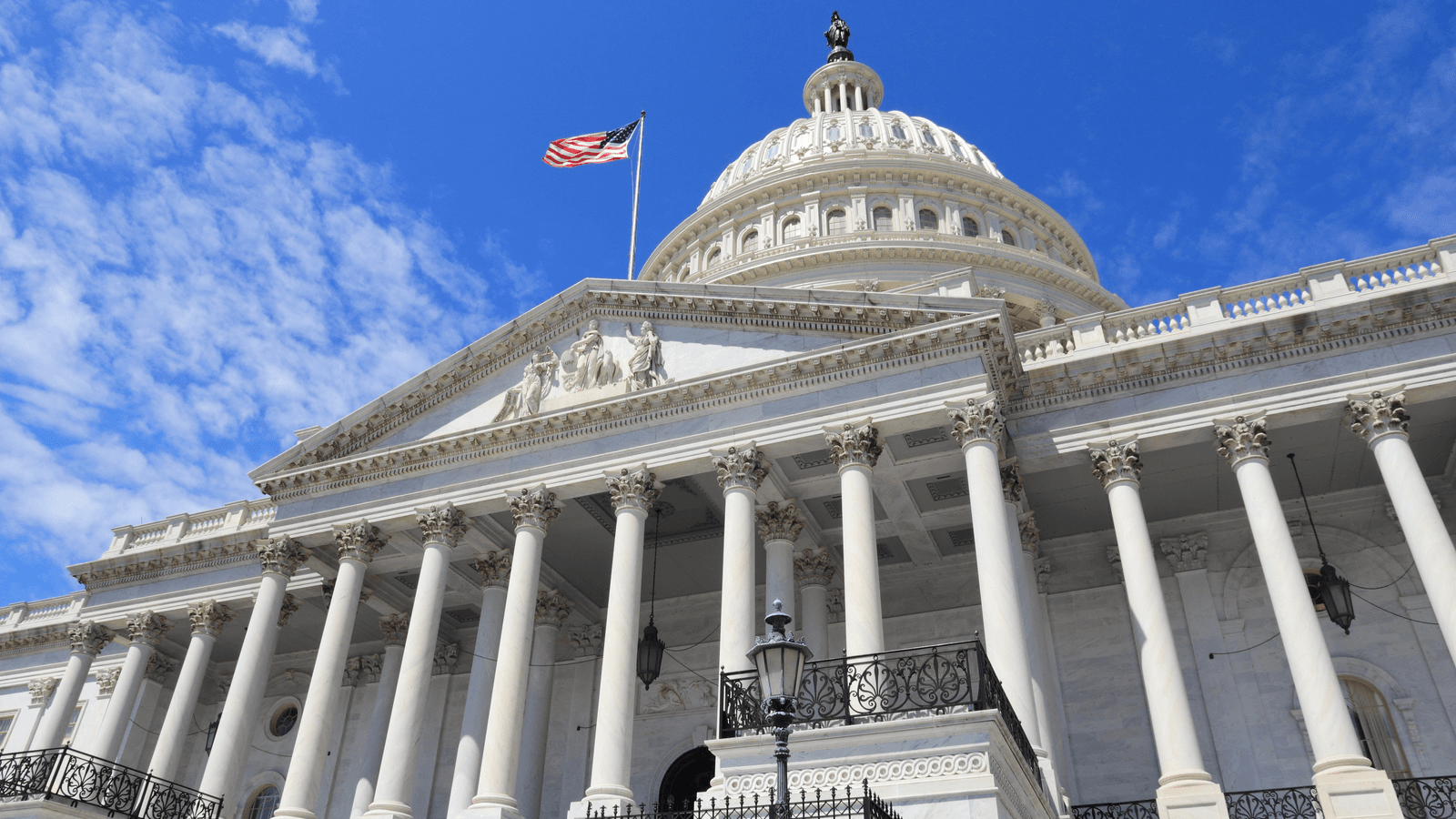Industry Execs Make Case For Crypto Mining Before Congress
Industry experts insist that a switch to proof-of-stake is not the instant solution many hope it would be

US Capitol Building. Source: Shutterstock
- Cryptocurrency mining experts appeared before Congress Thursday to discuss the industry’s energy usage
- Efforts to move toward renewable energy sources are increasing, witnesses said
Members of Congress put proof-of-work cryptocurrencies in their crosshairs Thursday as lawmakers called the energy usage of crypto miners into question.
Digital asset mining experts appeared before The House Committee on Energy and Commerce for the hearing “Cleaning Up Cryptocurrency” — where industry execs focused on renewable energy upsides and broke down differences between cryptocurrencies for representatives.
Bitcoin mining’s energy consumption is “deeply concerning,” Rep. Diana DeGette (R-Colo.) said during her opening statement. Carbon emissions must be at the forefront of any discussion about blockchain technology, she added.
Bitcoin and ethereum mining operations emitted more than 78 million tons of carbon dioxide into the atmosphere last year, according to a report cited by the subcommittee.
Most witnesses did not deny the energy usage — although many made a point to highlight renewable efforts — but instead chose to focus on the value digital assets add to the economy.
“There’s an energy consumption problem, yes, but on the other hand, there are incredible new opportunities being created by this industry,” John Belizaire, witness and founder and CEO of Soluna Computing, told Blockworks after the hearing. “This industry could catalyze the renewable energy revolution, which is something that we’re excited about, it will create more jobs.”
And bitcoin doesn’t equate to all crypto mining, after all, witness and Cornell Tech professor Ari Juels told lawmakers.
“Bitcoin does not equal blockchain,” Juels said. “The tremendous promise of blockchain technology does not require bitcoin or its energy-intensive component called proof-of-work.”
Proof-of-stake versus proof-of-work was a key focus of the hearing. Regulators in the European Union have recently called for the banning of the proof-of-work model, which is used to mine bitcoin, because of its high energy consumption.
The prominent sentiment that proof-of-stake mining uses less energy and should therefore be the industry standard is misguided, BitFury CEO Brian Brooks argued.
“Bitcoin is important because it introduced the world to the concept of a fully decentralized, secure trustless system of financial value exchange that turns on proof-of-work, not as a necessary evil, but as a positive feature of its design,” he said in a prepared statement.
Replacing one with the other would not work, contrary to what some might believe, Brooks said.
“An idea that sometimes circulates is that somehow we could have all of the positives without the energy usage if we would just abolish proof-of-work and migrate blockchains exclusively to proof-of-stake protocols,” he said. “Proof-of-stake is terrific, but it is not a substitute for proof-of-work, which exists for an entirely different set of purposes.”
When prodded by DeGette on whether proof-of-work is wasteful, Brooks maintained that the value of bitcoin outweighs its energy consumption.
“It’s clearly not wasted,” he said. “It’s an asset that large numbers of people are willing to pay for, for a variety of reasons.”
Get the news in your inbox. Explore Blockworks newsletters:
- The Breakdown: Decoding crypto and the markets. Daily.
- 0xResearch: Alpha in your inbox. Think like an analyst.






